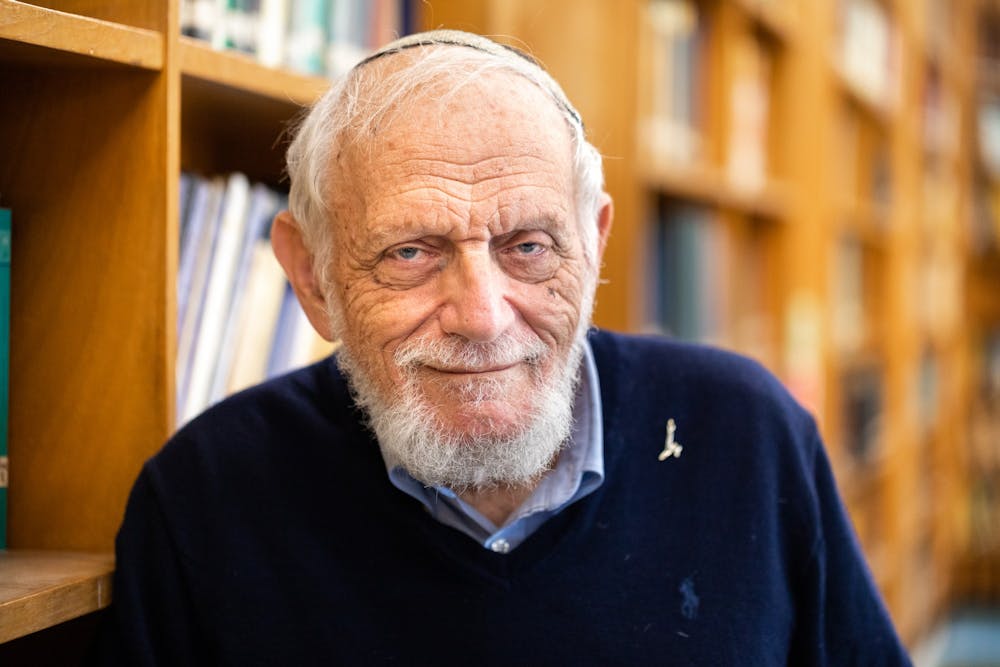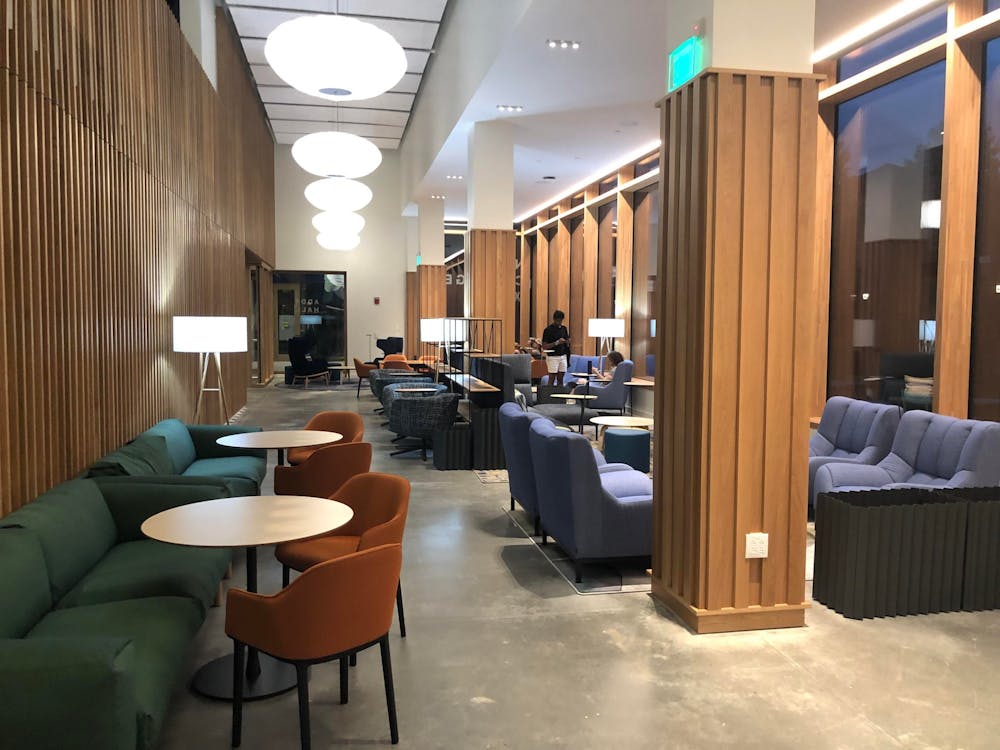Hillel Furstenberg GS ’58, Professor of Mathematics, Emeritus at the Hebrew University of Jerusalem, has been awarded the 2020 Abel Prize, widely considered one of the highest honors in mathematics and analogous to the Nobel Prize. He shares the award with Gregory Margulis, the Erastus L. DeForest Professor of Mathematics, Emeritus at Yale University, “for pioneering the use of methods from probability and dynamics in group theory, number theory, and combinatorics.”
Born in Berlin in 1935, Furstenberg’s family escaped Nazi persecution when he was four years old and eventually settled in New York. After completing a B.A. and an M.S. in mathematics at Yeshiva University, Furstenberg entered the Department of Mathematics at the University, where he completed his Ph.D. under the supervision of Salomon Bochner, the Henry Burchard Fine Professor of Mathematics, in 1958.
In an email correspondence with The Daily Princetonian, Furstenberg shared his motivations as a mathematician, the defining moments of his life, and what he considers to be his greatest legacies.
This correspondence has been lightly edited for concision and clarity.
The Daily Princetonian: Congratulations on the Abel Prize! What does the award mean to you?
Hillel Furstenberg: Receiving the Abel Prize implies that others also see and appreciate the beauty in some of the phenomena I’ve found, particularly connecting ergodic theory with combinatorics and probability theory with group theory. I hope that the exposure given to my work as a result of the award will bring more mathematicians to look at my work and push it further. I would also be happy if the publicity of the Abel Prize would enable me to demonstrate the beauty of mathematics to a broader audience.
DP: What were some of the most defining moments or changes in your life?
HF: As to changes in my life: At the age of four, my family was forced to leave Germany, and we found shelter in England; a year later, we moved in with my uncle in New Jersey who owned a poultry farm, settling in New York at the age of eight. My education in New York took place in Jewish institutions, the last years of which were directed to a career as a rabbi. Having graduated college, I changed direction and came to Princeton to pursue a Ph.D. in mathematics. The change wasn’t unexpected because at the time that I studied at Yeshiva University, a graduate school in mathematics was established on the premises, and so I had a head start in graduate-level math.

Moving to Israel in 1965 constituted another major change in my life, although from the professional standpoint, I was moving from one highly regarded university [the University of Minnesota] to another [Hebrew University of Jerusalem]. A crucial moment in my career was ten years later, listening to a guest lecture by Professor Konrad Jacobs on a recent advancement in combinatorics and realizing that ideas of ergodic theory could provide a new tool to deal with such questions.
DP: What was your time at Princeton like?
HF: At Princeton, I stayed in [undergraduate housing] rather than the Graduate College to prepare kosher meals. This was before the Center for Jewish Life was established. It took time for me to adjust to the system of learning with no course exams, and students were on their own to gauge their progress. On the other hand, the institution of “baby seminars” run by students enabled us to learn in an informal atmosphere, at the same time comparing our own progress against that of our classmates. In spite of the no-test system, I had the feeling that our mentors were keeping close tabs on us.
I benefited greatly from the attention of Professor Salomon Bochner, who shared with me a background in Judaica, his father having been a formidable rabbinic scholar. Bochner knew a great deal of mathematics beyond his own specialty in harmonic analysis and … had excellent mathematical instincts; he could understand the thrust of an argument without hearing details. I experienced this early on when I thought I had proved an interesting theorem but was in need of a proof of a lemma that was clearly true. Bochner’s intuition was that the lemma was false, and indeed, a book he suggested provided the counterexample. I'm quite sure he never read my dissertation in detail.

DP: The Times of Israel reported that, “When he published one of his earliest academic papers, rumors began to circulate that ‘Furstenberg’ wasn’t an individual but rather a pseudonym for a group of mathematicians. How could it be that one person could pull ideas from so many different areas?” What do you have to say to that?
HF: The idea of a pseudonym for a group of mathematicians guided by a common outlook on mathematics comes from the French “mathematician” [Nicolas] Bourbaki. Presumably, this is the inspiration for the kind of characterization of a mathematical polymath in the quote. While I’ve published in more than one area, such a description applied to me is well-intentioned hyperbole.
DP: Do you still work on math problems? ... What does your day-to-day research and teaching look like? And how do you choose which problems to work on?
HF: Until two years ago, I would teach one advanced course — usually on mathematics I was closely involved with — each year. I stopped when I realized my lectures were not going as effortlessly as they had in the past. I’ve continued guiding some students on a small scale. I continue doing research and find that mathematics has the advantage that if one fails to solve a problem, one can blame it on the difficulty of the problem. In my research, I follow a certain philosophy whereby certain procedures lead to random-like behavior unless there is a transparent reason for regularity. I’ve published several conjectures in this direction and these are keeping me busy.
DP: What do you think are your greatest legacies, in math and in life?
HF: Possibly, my most important legacy in mathematics is in identifying, in a given situation, a “dynamical system” whose behavior sheds light on the problem at issue. This can be helpful for the problem at hand and can also enrich the study of dynamics.
I don’t think there’s much to be learned from the way I’ve lived my life. What I have learned is that those who are worthy are not always those who are rewarded. But when the reward is one's private conviction of accomplishment, then no one needs be left out.








